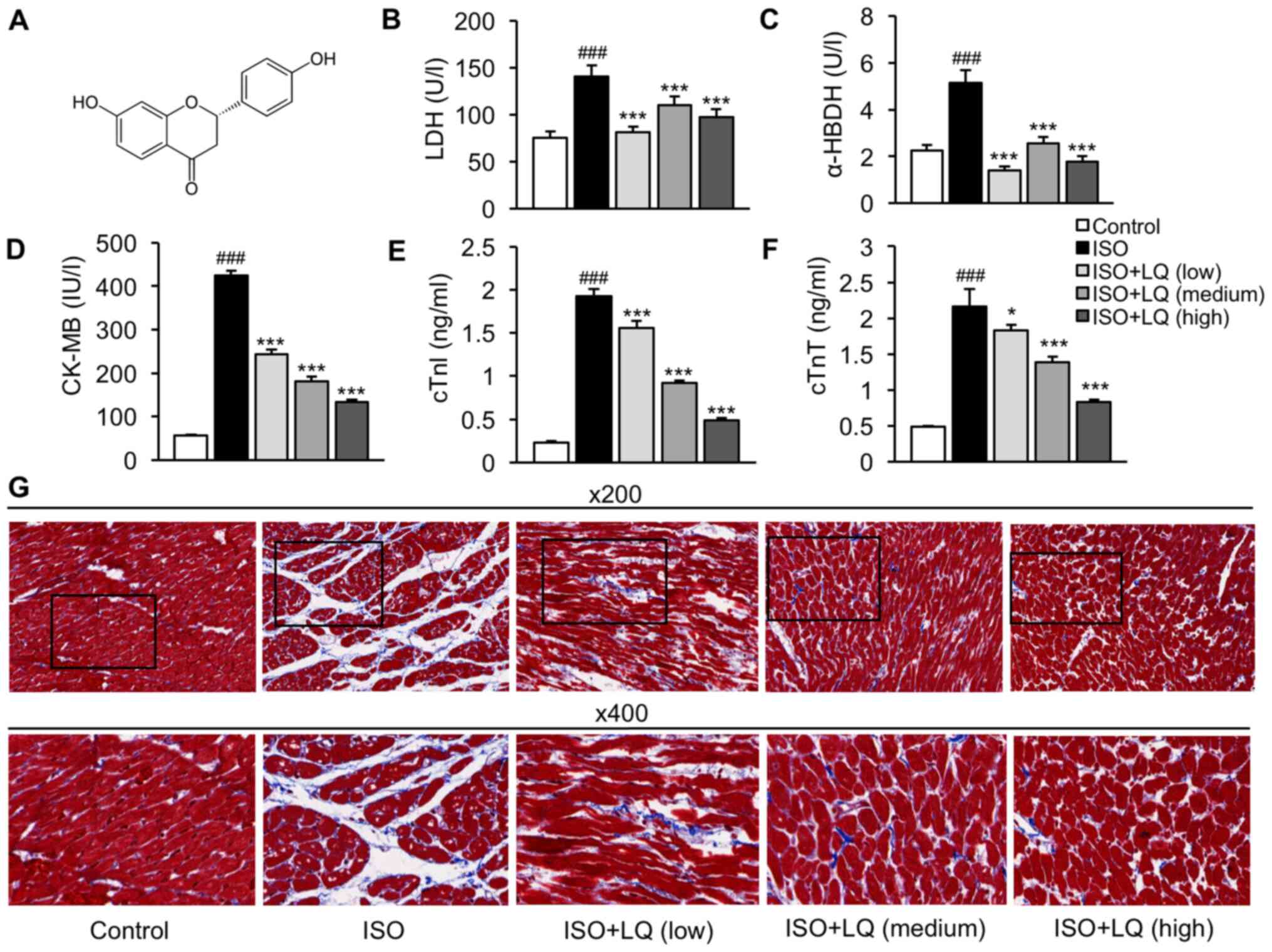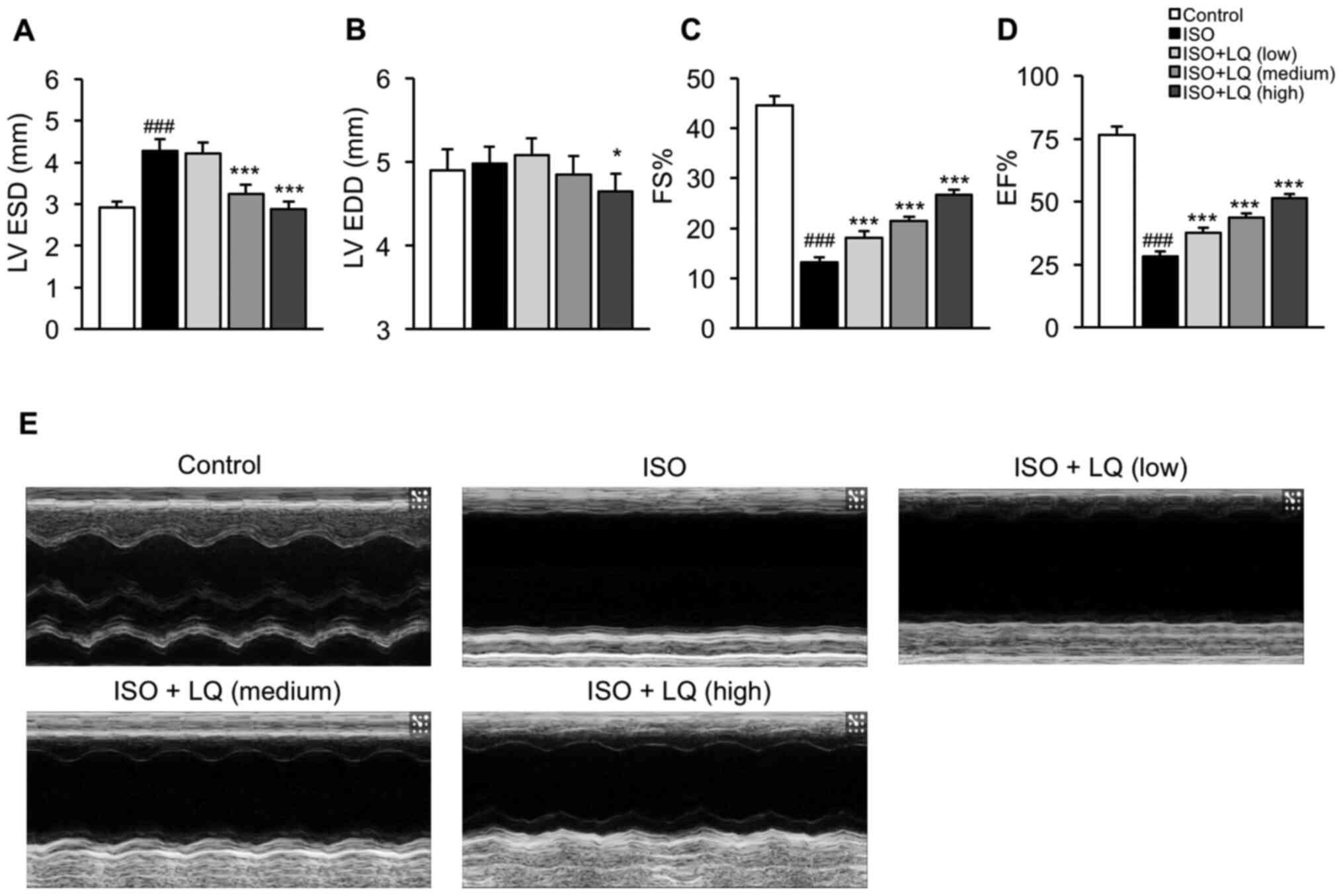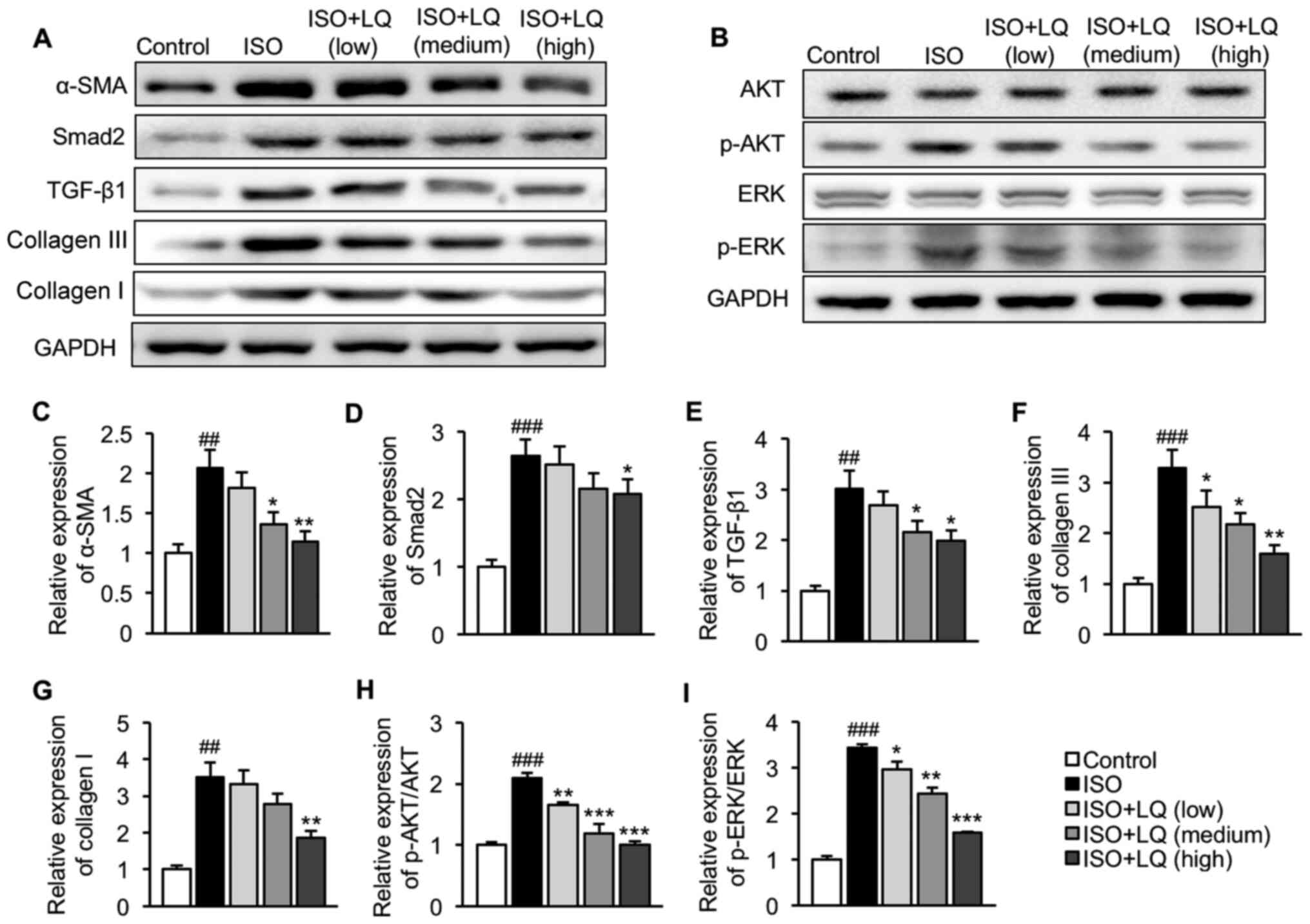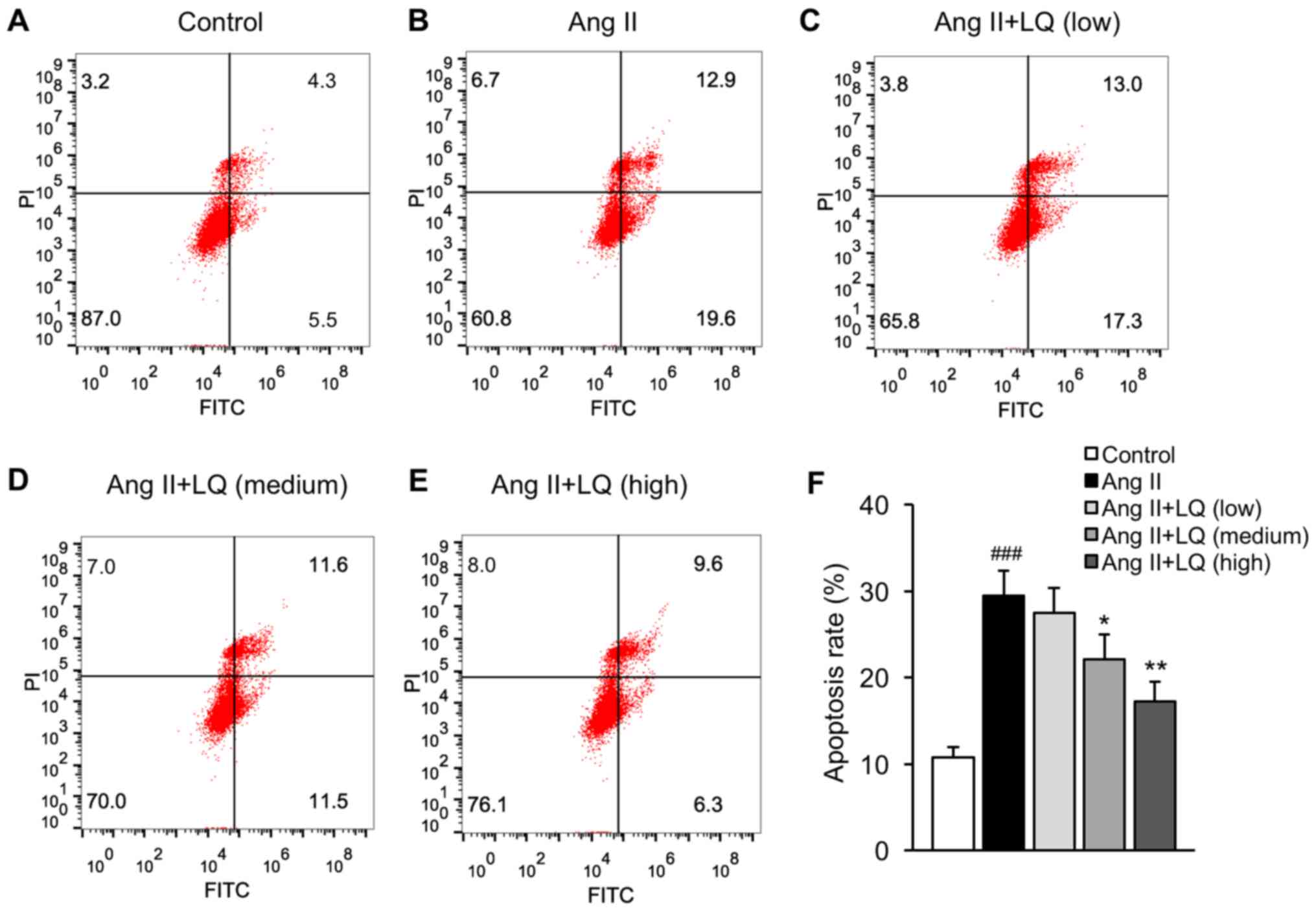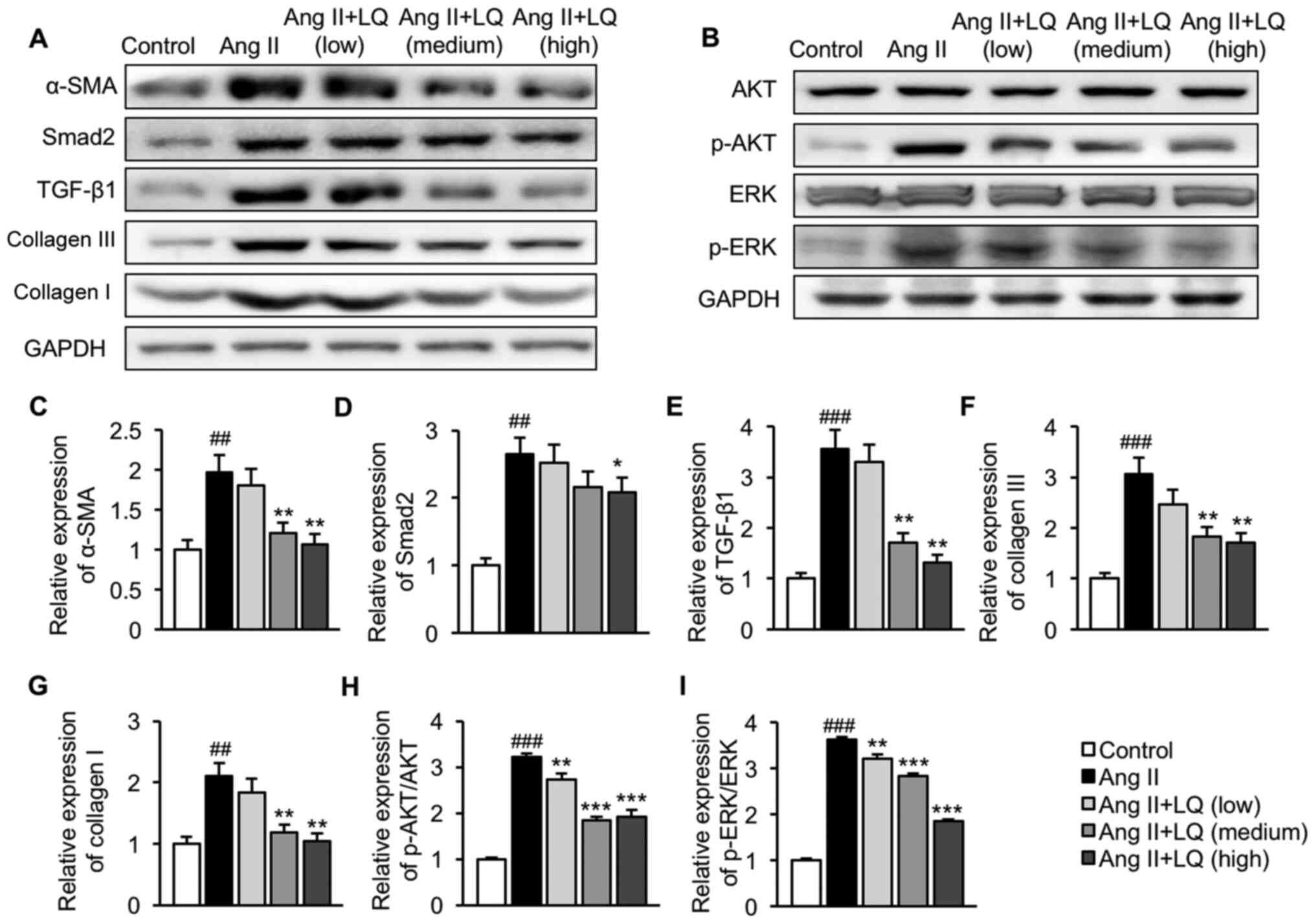|
1
|
Valiente-Alandi I, Schafer AE and Blaxall
BC: Extracellular matrix-mediated cellular communication in the
heart. J Mol Cell Cardiol. 91:228–237. 2016. View Article : Google Scholar : PubMed/NCBI
|
|
2
|
Bonnans C, Chou J and Werb Z: Remodelling
the extracellular matrix in development and disease. Nat Rev Mol
Cell Biol. 15:786–801. 2014. View
Article : Google Scholar : PubMed/NCBI
|
|
3
|
Gyöngyösi M, Winkler J, Ramos I, Do QT,
Firat H, McDonald K, González A, Thum T, Díez J, Jaisser F, et al:
Myocardial fibrosis: Biomedical research from bench to bedside. Eur
J Heart Fail. 19:177–191. 2017. View
Article : Google Scholar : PubMed/NCBI
|
|
4
|
Talman V and Ruskoaho H: Cardiac fibrosis
in myocardial infarction-from repair and remodeling to
regeneration. Cell Tissue Res. 365:563–581. 2016. View Article : Google Scholar : PubMed/NCBI
|
|
5
|
Fan Z and Guan J: Antifibrotic therapies
to control cardiac fibrosis. Biomater Res. 20:132016. View Article : Google Scholar : PubMed/NCBI
|
|
6
|
Yue Y, Meng K, Pu Y and Zhang X:
Transforming growth factor beta (TGF-β) mediates cardiac fibrosis
and induces diabetic cardiomyopathy. Diabetes Res Clin Pract.
133:124–130. 2017. View Article : Google Scholar : PubMed/NCBI
|
|
7
|
Gao L, Wang LY, Liu ZQ, Jiang D, Wu SY,
Guo YQ, Tao HM, Sun M, You LN, Qin S, et al: TNAP inhibition
attenuates cardiac fibrosis induced by myocardial infarction
through deactivating TGF-β1/Smads and activating P53 signaling
pathways. Cell Death Dis. 11:442020. View Article : Google Scholar : PubMed/NCBI
|
|
8
|
Kong P, Christia P and Frangogiannis NG:
The pathogenesis of cardiac fibrosis. Cell Mol Life Sci.
71:549–574. 2014. View Article : Google Scholar : PubMed/NCBI
|
|
9
|
Ma ZG, Yuan YP, Wu HM, Zhang X and Tang
QZ: Cardiac fibrosis: New insights into the pathogenesis. Int J
Biol Sci. 14:1645–1657. 2018. View Article : Google Scholar : PubMed/NCBI
|
|
10
|
Asl MN and Hosseinzadeh H: Review of
pharmacological effects of Glycyrrhiza sp. and its bioactive
compounds. Phytother Res. 22:709–724. 2008. View Article : Google Scholar : PubMed/NCBI
|
|
11
|
Lee EH, Park KI, Kim KY, Lee JH, Jang EJ,
Ku SK, Kim SC, Suk HY, Park JY, Baek SY and Kim YW: Liquiritigenin
inhibits hepatic fibrogenesis and TGF-β1/Smad with Hippo/YAP
signal. Phytomedicine. 62:1527802019. View Article : Google Scholar : PubMed/NCBI
|
|
12
|
Zhu X, Shi J and Li H: Liquiritigenin
attenuates high glucose-induced mesangial matrix accumulation,
oxidative stress, and inflammation by suppression of the NF-κB and
NLRP3 inflammasome pathways. Biomed Pharmacother. 106:976–982.
2018. View Article : Google Scholar : PubMed/NCBI
|
|
13
|
Xie XW: Liquiritigenin attenuates cardiac
injury induced by high fructose-feeding through fibrosis and
inflammation suppression. Biomed Pharmacother. 86:694–704. 2017.
View Article : Google Scholar : PubMed/NCBI
|
|
14
|
National Research Council (US), .
Committee for the Update of the Guide for the Care and Use of
Laboratory Animals. 8th edition. National Academies Press; 2011
|
|
15
|
Wang L, Yuan D, Zheng J, Wu X, Wang J, Liu
X, He Y, Zhang C, Liu C, Wang T and Zhou Z: Chikusetsu saponin IVa
attenuates isoprenaline-induced myocardial fibrosis in mice through
activation autophagy mediated by AMPK/mTOR/ULK1 signaling.
Phytomedicine. 58:1527642019. View Article : Google Scholar : PubMed/NCBI
|
|
16
|
Wu J, Bu L, Gong H, Jiang G, Li L, Ma H,
Zhou N, Lin L, Chen Z, Ye Y, et al: Effects of heart rate and
anesthetic timing on high-resolution echocardiographic assessment
under isoflurane anesthesia in mice. J Ultrasound Med.
29:1771–1778. 2010. View Article : Google Scholar : PubMed/NCBI
|
|
17
|
Wang X, Yang C, Liu X and Yang P: Ghrelin
alleviates angiotensin II-induced H9c2 apoptosis: Impact of the
miR-208 family. Med Sci Monit. 24:6707–6716. 2018. View Article : Google Scholar : PubMed/NCBI
|
|
18
|
de Boer RA, De Keulenaer G, Bauersachs J,
Brutsaert D, Cleland JG, Diez J, Du XJ, Ford P, Heinzel FR, Lipson
KE, et al: Towards better definition quantification and treatment
of fibrosis in heart failure. A scientific roadmap by the committee
of translational research of the heart failure association (HFA) of
the european society of cardiology. Eur J Heart Fail. 21:272–285.
2019. View Article : Google Scholar : PubMed/NCBI
|
|
19
|
Suthahar N, Meijers WC, Silljé H and de
Boer RA: From inflammation to fibrosis-molecular and cellular
mechanisms of myocardial tissue remodelling and perspectives on
differential treatment opportunities. Curr Heart Fail Rep.
14:235–250. 2017. View Article : Google Scholar : PubMed/NCBI
|
|
20
|
Wang JJ, Rau C, Avetisyan R, Ren S, Romay
MC, Stolin G, Gong KW, Wang Y and Lusis AJ: Genetic dissection of
cardiac remodeling in an isoproterenol-induced heart failure mouse
model. PLoS Genet. 12:e10060382016. View Article : Google Scholar : PubMed/NCBI
|
|
21
|
Bodor GS: Biochemical markers of
myocardial damage. EJIFCC. 27:95–111. 2016.PubMed/NCBI
|
|
22
|
Scherrer-Crosbie M and Kurtz B:
Ventricular remodeling and function: Insights using murine
echocardiography. J Mol Cell Cardiol. 48:512–517. 2010. View Article : Google Scholar : PubMed/NCBI
|
|
23
|
Dobaczewski M, Chen W and Frangogiannis
NG: Transforming growth factor (TGF)-β signaling in cardiac
remodeling. J Mol Cell Cardiol. 51:600–606. 2011. View Article : Google Scholar : PubMed/NCBI
|
|
24
|
Giannandrea M and Parks WC: Diverse
functions of matrix metalloproteinases during fibrosis. Dis Mod
Mech. 7:193–203. 2014. View Article : Google Scholar : PubMed/NCBI
|
|
25
|
Schirone L, Forte M, Palmerio S, Yee D,
Nocella C, Angelini F, Pagano F, Schiavon S, Bordin A, Carrizzo A,
et al: A review of the molecular mechanisms underlying the
development and progression of cardiac remodeling. Oxid Med Cell
Longev. 2017:39201952017. View Article : Google Scholar : PubMed/NCBI
|
|
26
|
Tian H, Yu D, Hu Y, Zhang P, Yang Y, Hu Q
and Li M: Angiotensin II upregulates cyclophilin A by enhancing ROS
production in rat cardiomyocytes. Mol Med Rep. 18:4349–4355.
2018.PubMed/NCBI
|
|
27
|
A P, P SR, M PR and K GR: Apoptosis in
angiotensin II-stimulated hypertrophic cardiac cells -modulation by
phenolics rich extract of Boerhavia diffusa L. Biomed Pharmacother.
108:1097–1104. 2018. View Article : Google Scholar : PubMed/NCBI
|















